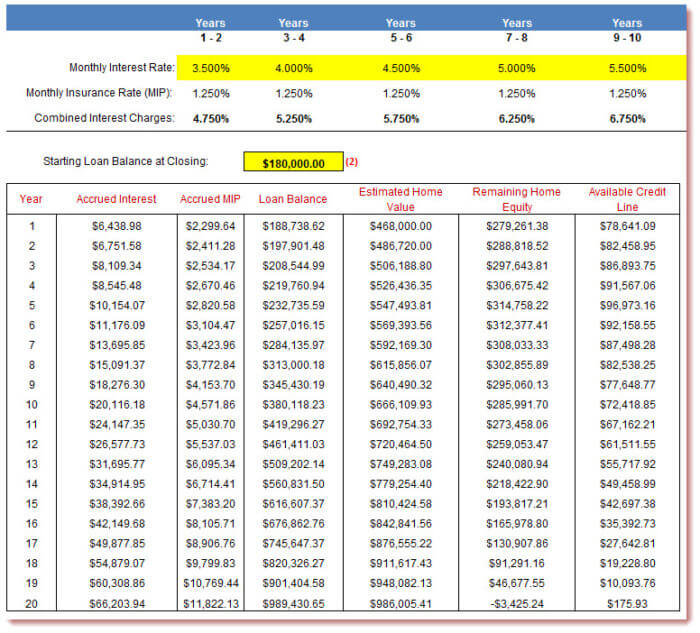



Reverse mortgages work similar to how annuities work - they are based primarily on life expectancy of the borrowers. Eligible property types include single-family homes, 1-4 unit properties, some condos and manufactured homes. Additionally, the property must be HUD-approved and you must live in the home. That’s why reverse mortgages are almost always done after retirement to supplement the borrower’s post-retirement income. Homeowners who are over the age of 62 and have either paid off their home loan or have a very small balance - which must be paid off upon closing of the reverse mortgage – are eligible. However, they can be significantly more expensive than HECM loans and they are not insured by the federal government. The main benefit of using a non-HECM lender is that they offer reverse mortgage loans in amounts higher than the limit set by HECM lenders. Non-HECM reverse mortgages are available from other lenders, banks, or credit unions. An HECM is the only reverse mortgage that’s insured by the federal government, and HECMs are only available through an FHA-approved lender. The major source of reverse mortgages has been the one insured by the Federal Housing Administration (FHA) called the Home Equity Conversion Mortgage program (HECM). With careful planning, reverse mortgages can be used as a way to supplement other retirement income. Reverse mortgages also can be used to purchase a home if you are able to come up with the difference in cash from the proceeds of the reverse mortgage loan and the purchase price of the property. Borrowers with reverse mortgages are still required to pay the real estate taxes, homeowners insurance, flood insurance, and association dues. But, unlike a standard mortgage loan, it requires no repayment until the borrower no longer occupies the residence.


 0 kommentar(er)
0 kommentar(er)
